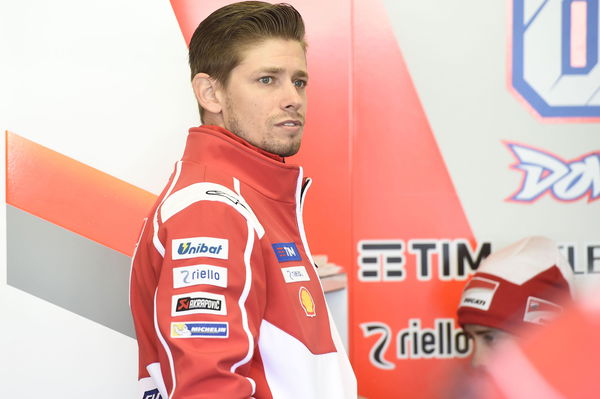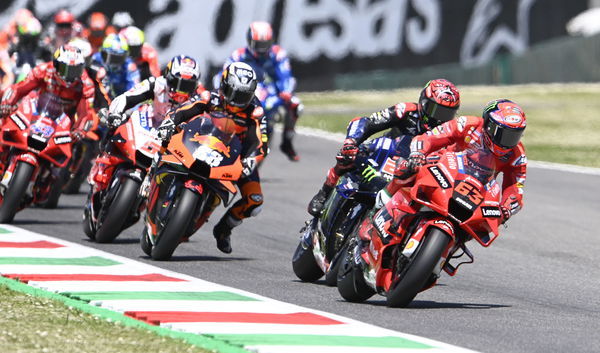Casey Stoner: “MotoGP must be dangerous, two-strokes difficult, unpredictable"
Casey Stoner contests that MotoGP machines should be more 'dangerous' and require a rider's skill to 'master' them, rather than have electronics aiding

Casey Stoner says the move to four-stroke engines and overt use of electronics have dampened MotoGP down to such an extent that it is no longer as ‘dangerous’ as it should be.
The two-time MotoGP World Champion is considered one of the greatest riders of a generation over a relatively short career that spanned only seven seasons between 2006 and 2012.
In 115 MotoGP races, Stoner won 38 of them and to date is the only rider on Ducati machinery to clinch the top crown, while he is one of the few to achieve the feat with two different manufacturers (Honda).
However he retired aged only 27, citing his disillusionment with the media exposure and commitments versus the racing, while he was unconvinced by the direction of the sport from being two-stroke, electronics-free formula into a more technologically advanced era.
It’s a decision Stoner - who developed a fierce and at times bitter rivalry with soon-to-retire Valentino Rossi - feels vindicated by when watching MotoGP now, saying it was his preference to ‘master’ a difficult bike without aides cutting in.
“You all know how much I didn't like media obligations and over time I realised that my main commitment was that and maybe only 5 or 10 percent was spent riding motorcycles on the track. . I wasn't having fun anymore,” Stoner told Moto.it.
“It's simple, I've always liked the two-stroke engine. For me, these are the real engines: difficult, unpredictable and when I went from 250cc to MotoGP, I found the four-stroke a lot easier ”.
“There is the electronics, which takes away a lot of control from the rider, and then the aerodynamics and the increasing sophistication. I like to ride a motorcycle, but not only to go fast, but also to feel it, to master it.
“Motorcycles must be dangerous, difficult, but MotoGP has turned out to be the other way around: times have been tightened, we have tried to spend less and less on testing, increasing the other costs enormously.”
Having spent several years out of the spotlight, Stoner has become more vocal in recent months after revealing he suffers with chronic fatigue syndrome that for long periods left him immobile and struggling to complete simpler tasks.
He says his condition has improved but he continues to live with the condition - which has no obvious cure - today.











